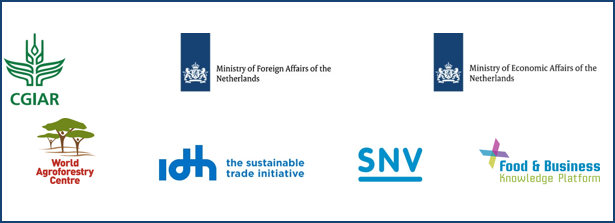
The CGIAR, the global Consortium of 15 Agricultural Research for Development Organizations, is currently refreshing its mandate, strategy and operational programs, and recognizes there is a need for improving the relationship with Private Sector actors, from multinational corporations to national companies to local entrepreneurs.
In the Netherlands, publicly funded research and private partners (farmers, farmer collectives, seed companies, food processors such as the dairy industry and the supply chain) in agriculture have a long tradition of close collaboration. Public Private Partnerships are promoted via funding facilities in research, innovation and implementation programs. The Netherlands government is keen to share this experience and expertise with the CGIAR.
Therefore, a workshop ‘Linking Public Goods with Private Interests to Scale Up Agricultural Innovations and Impact’ is organized on September 21 in The Hague between CGIAR and the Private Sector (by invitation only).
Accelerating Impact
Considering the growing demand for nutritious food, it is absolutely crucial to improve the sustainability of farming and overall food systems. Economic development will come from new forms of organization and business models that are attractive and profitable. International private sector parties are eager to interact with entrepreneurial farmers, motivated by access to resources and commodities and exploring new markets. Besides there is a global interest in sustainable production and a social ‘license to produce’ which is largely driven by consumer demand.
Companies are keen to make efficient use of research and the work of NGOs for scaling of interventions and delivery of impact right from the start and an early return on investments for all stakeholders. However, they meet a community of 500 mln often un-registered small-holder farmers. This is by far the largest group of farmers in the world, and the challenge is to progress from “farming to live” to “farming for a living”, also enthusing the next rural generation, the youth. Moreover, the current production needs to be changed into economic, socially and environmentally sensitive systems, resilient against price fluctuations, pests, diseases or weather shocks on short or long term. In other words: transforming markets.
The transition towards sustainable food production and consumption patterns requires action models from local to supra-national scale, in which the private sector together with researchers can act as game changers. It is not only input suppliers and traders that engage with the farmers, but increasingly also value-adding and consumer-facing companies that create opportunities for inclusive business models in integrated value chains. Research is the driver for the widening of solution space to help farmers, particularly the youth, and contribute to food and nutrition security goals, by analyzing and identifying innovation needs for growth in smallholder enterprises from value chain and market-pull perspectives in the short and long term. The question of scaling is intimately linked to such an approach. This is where the private sector, together with research, is developing ways to bring knowledge into use.
Objectives of the Workshop
In the designing phase of the next generation of CGIAR Research Programs a workshop is planned to enable the private sector and its partners and CGIAR research leaders to engage more meaningfully through:
- Sharing best practices from companies and researchers that inspire and create insight;
- Identifying what the CGIAR needs to bring research and value chain actors more often, more effective and more efficiently, leading to clarity on follow-up;
- Creating a shared understanding around role, position and opportunities for researchers and private sector in public-private sector research partnerships (when do you engage, what’s in it for me, what do you miss if you don’t);
- Clarifying how to shape such partnerships and what it means for development of the new research programs;
- Creating a model for future exchange of best practices.
Co-organized by
The Netherlands Ministries of Foreign and Economic Affairs, CGIAR Consortium, ICRAF, The IDH Sustainable Trade Initiative and SNV
- This event has passed.

